-
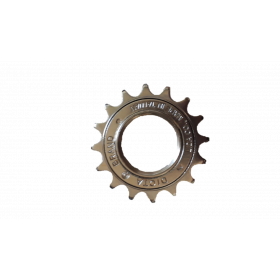 New productLida Machinery bike freewheel to be screwed 16 teeth
New productLida Machinery bike freewheel to be screwed 16 teeth- €5.10
-
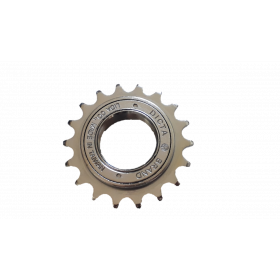 New productLida Machinery bike freewheel to be screwed 18 teeth
New productLida Machinery bike freewheel to be screwed 18 teeth- €5.10
-
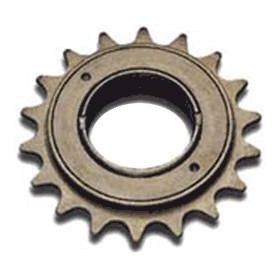 New productMaxxus freewheel to be screwed 18 teeth
New productMaxxus freewheel to be screwed 18 teeth- €7.10
-
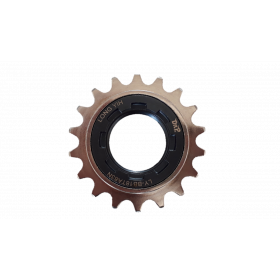 New productBLB bike freewheel to be screwed 18 teeth
New productBLB bike freewheel to be screwed 18 teeth- €22.99
-
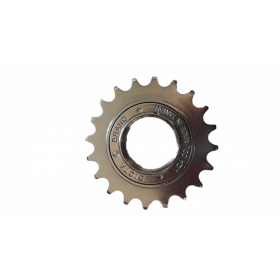 New productLida Machinery bike freewheel to be screwed 20 teeth
New productLida Machinery bike freewheel to be screwed 20 teeth- €5.10
-
 New productFreewheel 18 teeth
New productFreewheel 18 teeth- €6.99
-
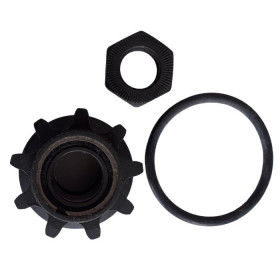 New productOdyssey 1 piece driver freewheel BMX 9 teeth
New productOdyssey 1 piece driver freewheel BMX 9 teeth- €24.99
-
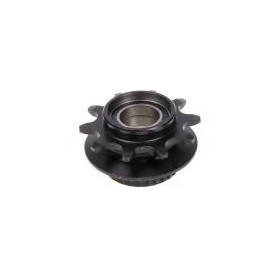 New productCult driver 9 teeth for BMX
New productCult driver 9 teeth for BMX- €24.90
Showing 1-8 of 8 item(s)
The BMX race freewheel is an essential part for BMX Race wheels, giving the rider the ability to stop pedaling while keeping the rear wheel moving. Its simple and efficient design is designed to maximize performance on dynamic races, guaranteeing rapid acceleration and direct power transmission. Here is a detailed guide to its types, characteristics and specificities.
1. Types of BMX Race freewheel:
a. Standard freewheel
Classic system where the mechanism is integrated directly into the wheel.Heavier than modern alternatives like cassette hubs, but still a popular option for entry-level bikes or beginners.
b. Quick-engine freewheel
Features an advanced clutch mechanism with a greater number of pawls or teeth.Offers increased responsiveness, essential for explosive starts and quick restarts.
c. Lightened freewheel
Designed with lightweight materials such as aluminum or specific alloys.Reduces the overall weight of the bike for better control while racing.
2. Technical characteristics of a bmx race freewheel:
a. Tooth size
13 to 16 teeth: Common sizes for BMX Race.13 teeth: Prioritizes speed for racing on fast tracks.
14-16 teeth: Favors starts and accelerations on technical or steep slopes.
b. Materials
Hardened Steel:Offers maximum durability, ideal for demanding conditions.
Aluminum:
Lighter, suitable for competitors looking for weight savings.
Composite alloys:
Compromise between lightness and robustness, used in high-end models.
c. Commitment
Number of Ratchets:Generally between 3 and 6 for BMX Race freewheels.
A greater number of pawls allows for faster and smoother engagement.
Angle of Engagement:
Reduced to approximately 5° to 10° for immediate power transmission.
d. Compatibility
Designed to fit 14mm or 10mm rear axles (BMX standard).Check chain compatibility (1/8" is standard for BMX Race).
3. Specificities of a BMX race freewheel:
a. Reactivity
BMX Race freewheels are optimized to provide instant power transmission, essential when starting off a ramp or sprinting in a straight line.b. Sustainability
Withstand the high stresses of racing, such as jumps, hard landings and sharp turns.c. Interview
Simple mechanism, requiring regular maintenance (lubrication) to guarantee optimal performance and avoid premature wear.d. Weight
Modern models favor lightweight materials to minimize rotating mass and improve acceleration.4. Recommended brands
a. High-end
Profile Racing
Steel or aluminum freewheels, designed for maximum durability and performance.Models with reduced engagement angle for ultra-responsive pedaling.
Chris King
Premium products with sealed bearings and precise clutch mechanism.Excellent reputation for their longevity and quality.
b. Mid-range
Odyssey
Lightweight and durable freewheels, suitable for intermediate competitors.Reliable models with good value for money.
Salt
Robust and affordable design, ideal for pilots looking for stable performance.c. Accessible
Dicta
Basic freewheels for beginners or occasional riders.
Affordable and easy to maintain.
ACS Crossfire
Standard models offering decent durability at a moderate price.
5. Installation and maintenance of a BMX race freewheel:
Facility
Remove the rear wheel: Use a suitable wrench to remove the old freewheel.
Clean the axle: Make sure the area is free of accumulated dirt or grease.
Attach the new freewheel: Screw it firmly onto the hub while ensuring alignment.
Interview
Lubrication: Regularly apply a light oil to the internal mechanisms to ensure smooth operation.
Inspection: Check the teeth for wear or deformation.
Cleaning: Avoid the accumulation of dirt, which can affect the proper functioning of the ratchets.
6. Tips for Choosing a BMX race freewheel:
Track type:
Fast tracks: Opt for a lightweight freewheel with a low tooth count.
Technical options: Choose a reinforced and robust model.
Competition level:
Beginner: Standard freewheel to minimize maintenance costs.
Advanced: Model with quick engagement for optimal performance.
Compatibility:
Make sure the freewheel is compatible with your BMX hub and chain.
7. Conclusion
The BMX Race freewheel plays a crucial role in performance on the tracks. A well-chosen and maintained model guarantees smooth transmission, increased durability and optimal responsiveness. Whether you're a beginner or an advanced competitor, brands like Profile Racing, Odyssey and Dicta offer solutions tailored to your needs.
